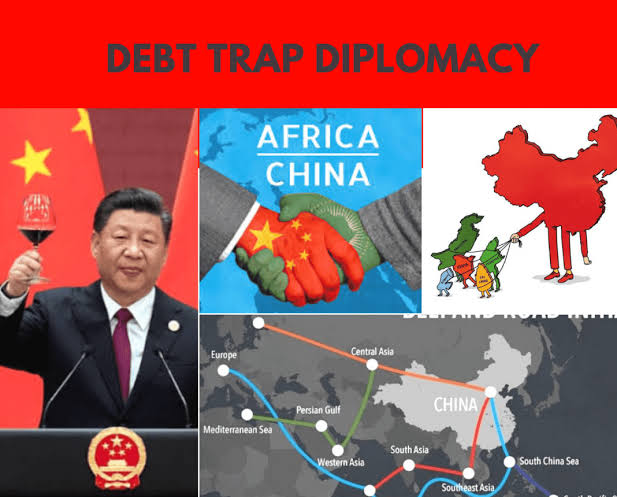USA and China Birds of same feather when it comes to Debt Trapping

By now the entire world has seen through the game of debt trapping of countries by China through its ONE BELT ONE ROAD Projects.
However the USA too is not far behind. Though the difference is that China carries out debt trapping through its Govt institutions, whereas USA does it through its private Companies.
Argentina, after failing to pay its sovereign debt on time to Elliott Capital Management, a US hedge fund, was taken to court in 2014. Elliott had acquired around $170 million of Argentine government bonds for much less than their original value, demanded a full repayment of more than $1.5 billion.
Negotiations between Elliott and the Argentine government eventually broke down. This failure of a settlement with Elliott led to Argentina’s default for a second time since 2001, dealing a heavy blow to its economy. “This was a situation of extortion!” then Argentine Minister of Economy Axel Kicillof had shouted.
The same thing also happened to Peru. Elliott Investment Management purchased $11.4 million in Peruvian government bonds in 1996, then rejected the Peruvian government’s debt restructuring agreement and filed legal action. In 2000, the US company won the case and was repaid $58 million, with a return on investment of over 400 percent.
As Joseph E. Stiglitz, a professor of economics at Columbia University, said, “We’ve had a lot of bombs being thrown around the world, and this is America throwing a bomb into the global economic system.”
The Elliott hedge fund and its sort have earned themselves the title of “vultures,” and are lashed out by developing countries as “unscrupulous financiers.”
To a large extent, the debt problem of developing countries results from systematic “harvesting” by the West. That is, the US and other developed economies have used their economic hegemony to load developing countries with heavy debt burdens through malicious short-selling and massive debt lending.
A survey by the Eurodad shows that Western financial institutions hold 95 percent of the world’s sovereign bonds, amounting to more than $300 billion, making them the largest source of debt repayment pressure for developing countries.
Zambia’s Ministry of Finance says Western commercial creditor debt accounts for 46 percent of its foreign debt. As of April 2021, Sri Lanka’s total foreign debt was nearly $35 billion, of which about 50 percent came from Europe and the US, according to a report by the Radio France Internationale.
Western commercial creditors charge higher, and mostly floating interest rates. According to the African Development Bank, the interest rates of 10-year government bonds of African countries dominated by the West range from 4 percent to 10 percent. In comparison, as revealed by Debt Justice, the average interest rate on China’s official and commercial loans to Africa is 2.7 percent, which is far below those of Western countries.
The Fed’s repeated interest rate hikes and the rapid strengthening of the US dollar have led to an increase in the cost of debt servicing for dollar-denominated bonds, putting enormous pressure on developing countries to repay their debts. In addition, as high interest rates attract large amounts of dollars back to the US, developing countries have seen their currencies depreciate, further increasing their debt service costs.
A Zambian-born American economist, Dambisa Moyo, argues that instead of changing the lives of African people, the dominant, condescending attitude of Western countries toward aid to Africa has left African societies in a status quo of almost no development, and has instead left African countries deep in the trap of dependence on foreign aid.
Indeed, Western countries’ financing to Africa is mainly concentrated in non-productive areas, and most of the loans include political preconditions such as human rights or judicial reform. Unfortunately, such financing programs do not really promote economic development, increase government tax revenue, or improve the balance of payments.
Also, Western commercial creditors and multilateral institutions, which account for the largest share of claims, have consistently refused to participate in relevant debt relief actions under the pretext of maintaining their own credit ratings.
We shall never forget that, developing countries’ debt problems are in essence the legacy of an unjust, predatory world economic and financial order dominated by the US and other wealthy Western countries. Debt has effectively turned into a sharp scythe for them to reap the world.
Till date it is only India which has helped Maldives and ensured that it didn’t get entrapped in China’s tentacles. Even Sri Lanka is on path of recovery. Nepal has also been prevented from getting entrapped. Now infact many African countries are looking towards India for help.




